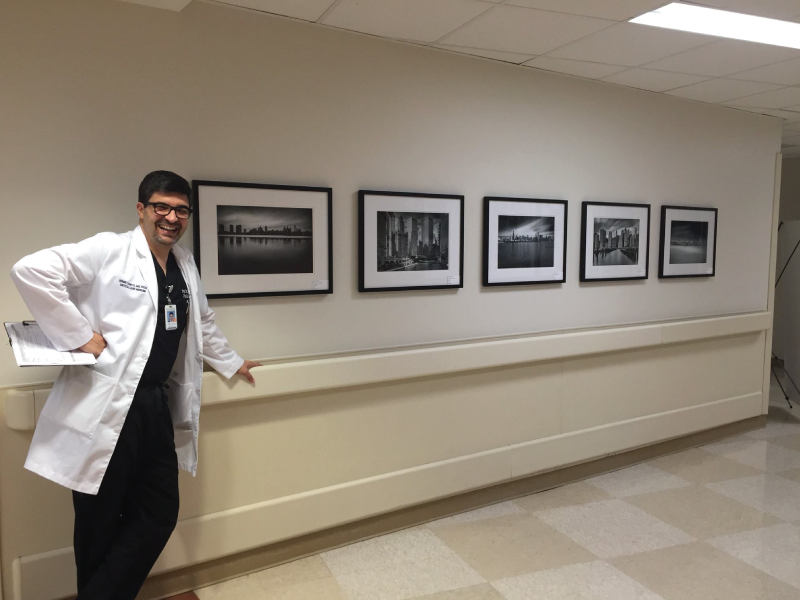September 20, 2017
A Night Shift Checklist

One of the biggest changes in my clinical practice has been the “opportunity” to cover night shifts, something not required in my previous academic role. The realization that critical illness is not a daytime occurrence and that 24-hour coverage by critical care teams provides benefits to patients and hospital partners has led to an increase in the number of intensivists working in-house night shifts. This has become a common practice in critical care programs around the country, including a growing number of our programs and many academic programs. Although covering night shifts has become a part of how we provide care in the ICU, it still seems to be a disruptive part of our career. To say the least, it is not the most popular shift. My goal is not to deliberate on the merits and evidence behind 24-hour coverage or propose new models of coverage, but to simply share with you my approach to making them more “enjoyable.” Often, how we feel about specific aspects of our role can change drastically if we reframe our perspective on them. To that effect, finding value and purpose in what we do is all about perspective. Over time, I have created a simple checklist that has helped me reframe how I personally view and experience night shifts. This is a simple checklist of five things I try to do when on nights.
1. Sleep well
There is a rapidly growing body of literature that speaks to the importance of appropriate and healthy sleeping and its impact on our performance at work. We know how disruptive changing back and forth from daytime to nighttime shifts can be. Furthermore, it seems that the time in between night shifts is harder on us physically than the night shift itself. I have learned to treat my sleep like exercise. Very methodic and prescribed, with a strict routine for my pre- and post-call days. Sleeping well is not something that happens by default, but by design (like everything else in critical care).
2. Find a family
Finding a family of a critical care patient late at night or early in the morning and spending some quality time with them is probably one of the greatest gifts we can give patients during a night shift. I am a firm believer that although there could be many other colleagues who could run a code or place a central line, there are few better equipped than a compassionate intensivist to provide comfort and perspective to our patients and their families. This is a true game-changer. A good conversation with a patient or family is – without fail – a way to make your time on a night shift valuable and meaningful.
3. Learn something new
Ongoing growth and learning seem to be key determinants in professional satisfaction. Like everything else in your life, you are solely responsible for this happening. I make a point of learning or reading something new every night shift, whether it be a new study on Angiotensin II or a letter by Seneca to Lucullus outlining his views on the brevity of life. If it’s too busy for a quick read, teach something to your team. The night shift has plenty of young and eager learners.
4. Thank a colleague
I have heard colleagues express dissatisfaction with not feeling appreciated or not feeling others recognize their work, value and efforts. This speaks to an important essence of being human – we seek recognition from our peers. Well, like anything else in life, it starts with what we do. Every night shift, make a deliberate effort to find a member of the care team and genuinely thank them for something they have done. It could be the janitor for cleaning the call room, a new nurse for being awesome during a code or a radiology tech for coming twice to the ICU to get the right image. Feeling appreciated starts by appreciating others.
5. Treat yourself
Be nice to yourself. You have worked hard and deserve a treat. Many change gurus recommend associating certain milestones or accomplishments with small rewards as a way of reshaping our feelings towards certain activities (i.e. training for your first 5k or a marathon). For me, night shift = jazz vinyl. After my first set of night shifts in Houston, I visited a record store and bought a Charles Mingus vinyl record. Then I came back home and listened to it with a nice cup of coffee on the side. Since then, that is my night shift reward. Several night shifts = a trip to a record shop, followed by a nice relaxing cup of coffee.
Final thoughts
There is obviously a lot more that goes on during night shifts. I have found that when it is very busy, the shift flies by; however, there may be pauses and breaks. These are great opportunities to implement some of the items on the checklist. Finally, number 1 and 5 as pre-and post-routines are always present in my night shifts. I hope this piece inspires you to reflect on your habits and what you can do to make your shifts more enjoyable and meaningful.
